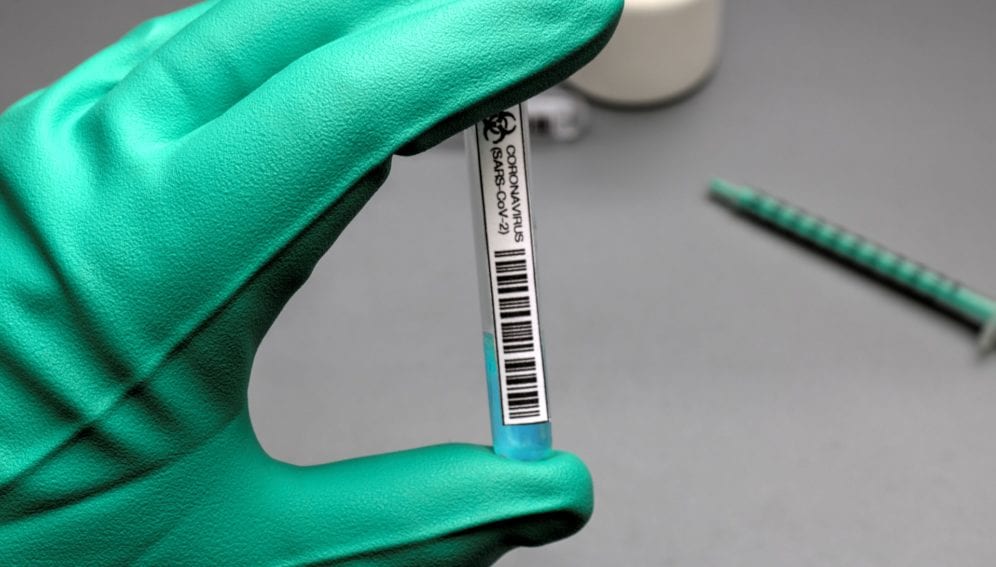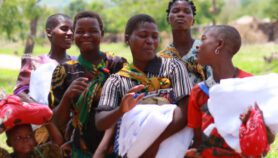14/01/21
Pressure on S. Africa for vaccine amid new COVID-19 strain

By: Bernard Appiah
Send to a friend
The details you provide on this page will not be used to send unsolicited email, and will not be sold to a 3rd party. See privacy policy.
South Africa’s new COVID-19 wave fuelled by a new variant of the virus is putting pressure on the country’s healthcare system, leaving policymakers concerned about the government’s failure to secure a vaccine.
Africa is set to get the first COVID-19 vaccine doses in March from the COVID-19 Vaccines Global Access (COVAX) Facility, a global effort aimed at speeding up the development, manufacture and equitable distribution of new vaccines, according to Matshidiso Moeti, World Health Organization (WHO) regional director for Africa.
According to a report from the WHO published this week (12 January), South Africa recorded the Africa region’s highest number of new cases last week, with the 125,287 new cases translating to 211.2 new cases per 100,000 population.
“To deal with this issue, the only major source of protection is going to come from a vaccination programme.”
Zweli Mkhize, Ministry of Health, South Africa
Nigeria’s 8,315 new cases or four cases per 100,000 and Zimbabwe’s 6,008 new cases or 40.4 new cases per 100 000 also represent steeper increases since November, the report adds.
“There has been an indication that our variant is quite different from the one identified in the United Kingdom. However, both variants seem to be highly transmissible,” said Zweli Mkhize, South Africa’s minister for health, at a virtual meeting held last week (6 January) with the country’s portfolio committee on health.
The new variant called 501Y.V2, which emerged in South Africa’s metropolitan area, Nelson Mandela Bay on the coast of the Eastern Cape Province, has eight defining changes in the COVID-19 virus spike protein, according to a paper yet to be accepted for publication.
“From preliminary and ongoing investigations in South Africa, it is possible that the 501Y.V2 variant is more transmissible than variants circulating in South Africa previously. Moreover, while this new variant does not appear to cause more severe illness, the observed rapid increases in case numbers has placed health systems under pressure,” the WHO report adds.
Mkhize says that more studies are being conducted by South African researchers and international partners on the impact of the new variant, its potential to cause severe forms of the disease and its responsiveness to COVID-19 vaccines.
“It leaves us with one reality, and that is to deal with this issue, the only major source of protection is going to come from a vaccination programme,” he adds.
But some policymakers are concerned about the country’s readiness for distributing COVID-19 vaccines.
“Over 33 countries in the world have already secured vaccines for their citizens, and South Africa being among the top 15 countries with the most infections, has not secured [COVID-19] vaccines,” said Naledi Chirwa, a member of the National Assembly of South Africa and a member of the portfolio committee on health, during the virtual meeting.
Chirwa added that the situation could jeopardise South Africa’s plan to begin the country’s COVID-19 vaccination programme next month.
But as South Africa and other African countries seek to secure COVID-19 vaccines, scientists are concerned about the challenges of detecting new strains of the virus. As at now, no African country has secured a vaccine.
Onikepe Folarin, an associate professor in the department of biological sciences at Redeemer’s University, Nigeria, tells SciDev.Net: “A challenge is the procurement of reagents and supplies for the characterisation of the new variant through genome sequencing using the next generation sequencing technique.
“Although the facilities exist in our laboratory, procurement of the reagents into the country has been very challenging as Africa does not produce any of these reagents and supplies.”
According to Folarin, who is also the deputy director of the African Centre of Excellence for Genomics of Infectious Diseases at the Redeemer’s University, the emergence of the new variants of the COVID 19 virus is not new and abnormal considering the general characteristics of viruses.
“All hands need to be on deck to be able to track them and characterise them as early as possible to enhance management and control,” says Folarin. “Policymakers should endeavour to fund research within the region that will enable better understanding of the virus and behaviour in the region and also to develop indigenous vaccines.”
This piece was produced by SciDev.Net’s Sub-Saharan Africa English desk.
References
Weekly epidemiological update (WHO, 12 January 2021)













